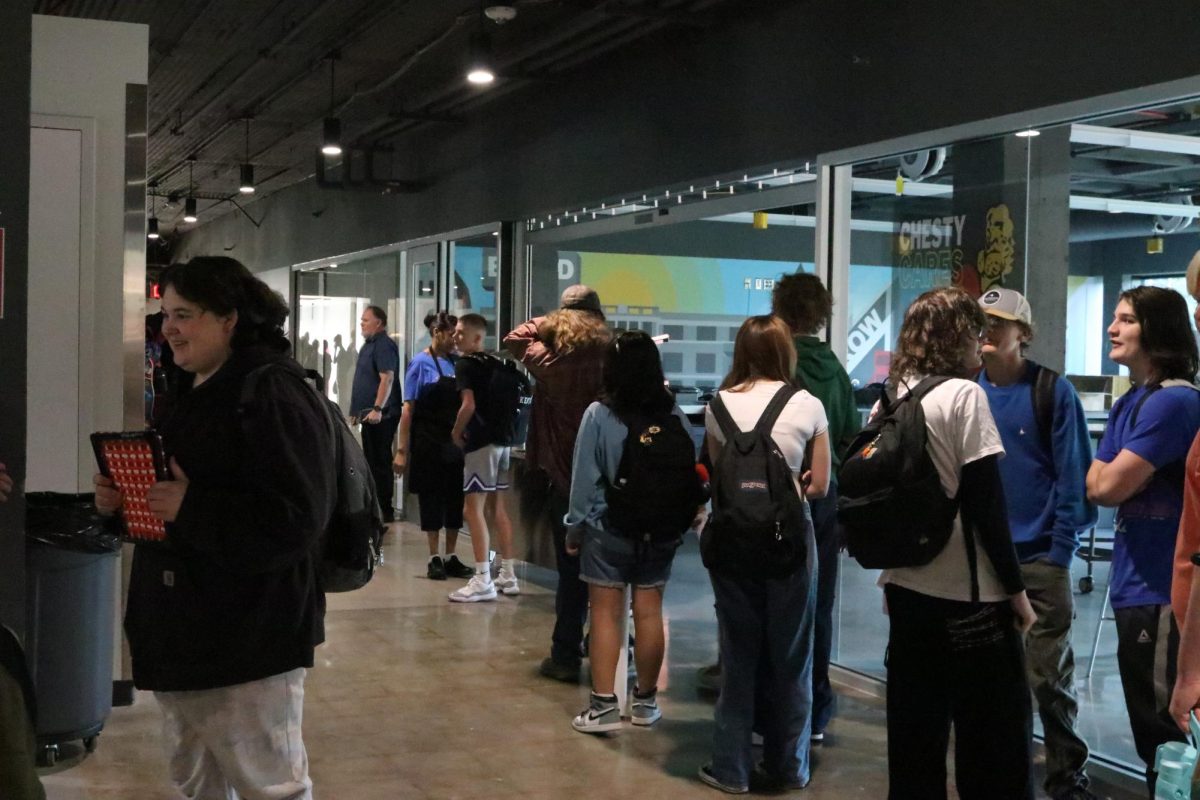Donate Blood. Make a life saving difference.
These words hung on the posters for the semi-annual blood drive Friday reminding students about the value of donating blood.
What the posters didn’t mention were the many requirements potential donors have to meet to be eligible. One has to be more than 16 years old, weigh at least 115 pounds and can’t have had cold symptoms in the past three days.
Also, if you are a man who has had sex with another man since 1977, federally labeled as “MSMs,” you are not allowed to donate blood — even if you are completely healthy.
First adopted by Food and Drug Administration in 1983, the rule was a response to the AIDS scare when the AIDS-causing virus HIV and other deadly diseases transmitted by bodily fluids were more prevalent among homosexual men than any other demographic group. According to the Red Cross, MSMs are 60 times more likely to have HIV than the general population. Compared to first-time donors, MSMs were 800 times more likely to have HIV.
But in 1983, there weren’t proper tests to detect HIV — hence the ban on any MSMs from donating blood.
“I think at that point, they were scared, and they wanted to do whatever they could to prevent the disease from spreading,” junior Matt Rood said. “Because it’s AIDS — a terrible disease that affects a lot of people.”
Rood learned about the ban on MSM blood donation and found that most people did not know about the FDA’s ban.
“I think it’s just not talked about, so it hasn’t been changed,” Rood said. “I think people just ignore it and treat it like it’s not an issue. Or they don’t know about it because it isn’t well-publicized. But it is a real issue.”
With the upcoming blood drive and the ban in the news, Rood has worked to increase public awareness. In one Facebook post on Oct. 24, he expressed his belief that “…we are still under the scare of the 1980s. No joke…”
“I wanted to get people talking about it,” Rood said. “And I think that any time you can get people to start talking about an issue, people who haven’t heard about it learn some new information, or interject their opinions, and then everyone can have a more rounded perspective.”
The post got 43 likes and 38 comments.
Among the 43 likes were Organization for Sexual and Gender Equality co-president, junior Andrea Summey.
“As someone who is not homosexual, I feel that it’s just an old rule,” Summey said. “But as someone who is an ally to homosexuals, I feel that it’s just totally against them and it’s not anything they can really control.”
The ban on MSM’s blood became a national issue this summer as blood banks across the United States experienced a decrease in blood donations. A group of legislators, along with several universities and the American Red Cross, worked to get the Department of Health and Human Services to review FDA’s ban.
The legislators argued that the blood ban was discriminatory to homosexuals as well as limiting much-needed blood donations.
“I don’t think the lifetime ban is very practical anyway when you are keeping 50,000 people a year who want to donate from donating,” Rood said. “If someone has HIV, then they can’t donate blood anyway. But if someone is clean and is a homosexual, they should be able to have a normal sexual lifestyle and be able to donate blood. I think it needs to be repealed.”
Technological advances have allowed for more accurate tests for HIV.
The Community Blood Center, which holds blood drives at LHS, is a major blood collection center that provides for about 70 hospitals in Kansas and Missouri. Not only does CBC tests its blood collection itself, it also sends out the blood to be tested at a different center.
“There’s no perfect science,” said Stann Tate, the marketing director for the CBC. “The tests we use are accurate, but 100 percent accuracy — there’s no such thing.”
CBC receives complaints about the ban on MSMs blood, but can only say one thing: it’s a policy the FDA set.
Some students accept the rule without much hesitation.
“I think they make those rules to look out for the best interests of the people, so I don’t think it’s anything in a bad way or against people [who are homosexual],” said senior Alex Hilliard, a two-time donor. “If I was a male and I fit that description or did that, then I would understand and not take it personally.”
Others would argue the system is broken.
“I think it’s completely insane because all blood is good blood — no matter who it came from,” said sophomore Lizzy McEntire, StuCo coordinator for the LHS blood drive. “Also straight people can have AIDS and HIV as well, so for gays to be unable to give is crazy. I don’t think this is valid because if you were dying and in need of a blood transfusion, who cares where it came from?”














